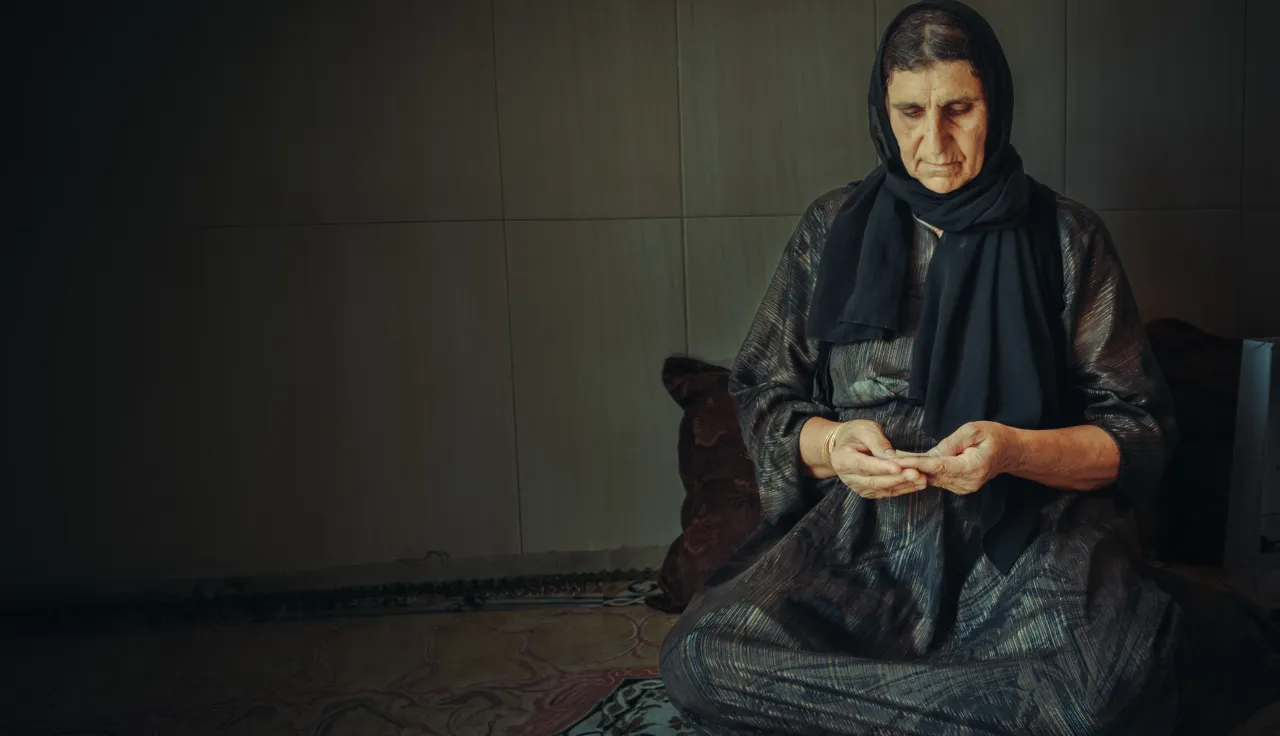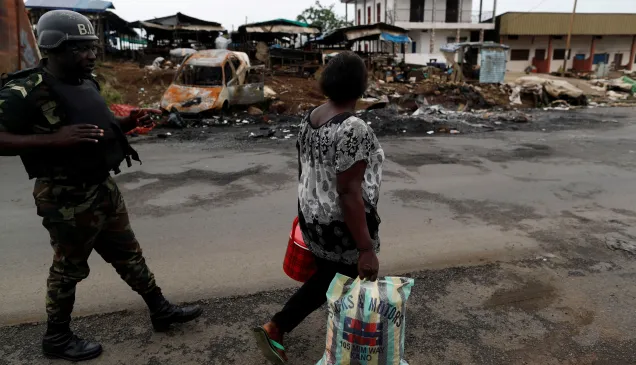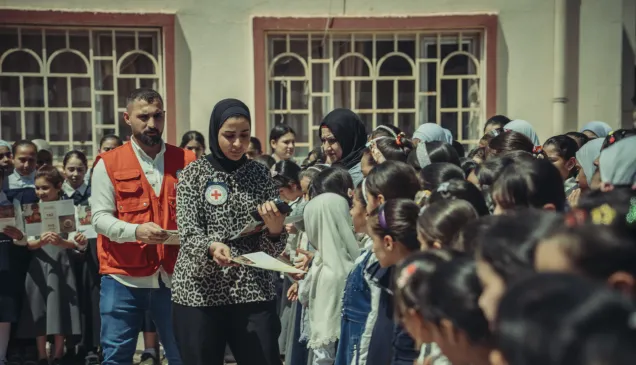Baghdad (ICRC) – As the world marks the International Day of the Disappeared, countless families in Iraq search and wait, for years sometimes decades, not knowing if their loved ones are dead or alive. They are unable to find closure and therefore undergo immense emotional and psychological suffering. Adding to this pain are the challenges families often face due to economic and social hardships. These families have the right to know what happened to their loved ones, a right that is enshrined in international humanitarian law.
In Iraq, decades of successive conflicts and periods of violence have led to one of the highest numbers of missing persons in the world. Hundreds of thousands of individuals remain unaccounted for, with nearly as many family members still looking for them, many of whom live in limbo due to the uncertainty around their missing relatives’ fate.
Every family with a missing member has a story to tell. Mazin, a 16-year-old boy from the Yazidi communities in Sinjar, recalls painfully, “My family initially consisted of eight brothers and a sister. In 2015 four of my brothers, my parents, and my nephew went missing. I still miss them every day. To this day, I cry when I see other children having a good time with their parents.”
Years on, the pain is still raw, but the resilience of the families endures. Asia, a 47-year-old woman from Saqlawiah, represents this never-ending hope. In 2016, four of Asia's brothers went missing, leaving a void in her life. However, through the ICRC`s accompaniment program which helps families cope with the emotional and social difficulties related to the disappearance of their relatives, Asia found solace amongst other women who have suffered a similar loss. Gradually, Asia assumed the role of her family's breadwinner. She has single-handedly raised her siblings and their children, becoming a beacon of strength and inspiration within her community.
“We share nothing but respect for the strength shown by these families and we recognize their overwhelming need for answers. In the first half of 2023, 994 requests were submitted by families to find their missing relatives. The fate and the whereabouts of 171 persons were clarified and five people were reunited with their families abroad. We currently have 28,892 open missing cases in Iraq, and we will continue to support authorities to help families get the closure they deserve,” said Jean-Jerome Casabianca, the ICRC’s head of delegation in Iraq.
Since 1991, the ICRC has been at the forefront of supporting missing persons and their families in Iraq through its activities and its support to relevant actors in various areas to help families with their search. The ICRC implements a multidisciplinary approach in addressing families’ needs which involves elements of psychological, psychosocial, economic, and administrative support. The ICRC also collaborates with Iraqi authorities in strengthening the investigative and medico-legal systems, facilitating the identification and recovery of deceased individuals, while enhancing data management capabilities to address this pressing issue with efficacy.
Notes to editors:
ICRC in Iraq:
The ICRC has been working in Iraq since 1980, and its main activities are visiting detainees, reuniting separated families, and clarifying the fate of missing persons, as well as disseminating and promoting international humanitarian law among all sectors of Iraqi society. The ICRC also works to mitigate the effects of climate change and help communities adapt in the long term through the rehabilitation of water treatment plants, drinking water pumps, water networks and irrigation systems. It also provides support to hundreds of affected families by providing cash assistance to help them restore their livelihoods in close cooperation with the Iraqi National Red Crescent Society.
Fact & Figures:
- In 2022, the ICRC received 1,477 requests from the relatives of missing persons to find their missing family members. We helped to clarify the whereabouts of 678 missing persons by supporting the authorities in their search and through ICRC activities such as the exchange of Red Cross Messages between detainees and their families.
- In the first half of 2023, families submitted 994 requests to locate their missing relatives. The fate and the whereabouts of 171 persons have been clarified and five people were reunited with their families abroad.
- The ICRC supports authorities in the search for those who went missing during the Iraq-Iran and Iraq-Kuwait wars. In 2022, under the auspices of the ICRC, the mechanism put in place managed to recover 236 sets of human remains which were handed-over by Iraq to Iran and 45 sets of human remains handed-over by Iran to Iraq. In the first half of 2023, 71 sets of human remains were handed-over by Iraq to Iran and 4 sets of human remains handed-over by Iran to Iraq.
- In the first half of 2023, we exchanged 4,525 Red Cross Messages.
For more information, please contact:
Hiba Adnan, Spokesperson, ICRC Baghdad: M: +9647901916927
Email: hiadnan@icrc.org
Avin Yassin, ICRC Erbil: Mobile: +964 771 994 5066
- Email: avyassin@icrc.org
To learn more about the ICRC’s activities in Iraq:
Visit our website and follow us on Facebook, Instagram and Twitter




